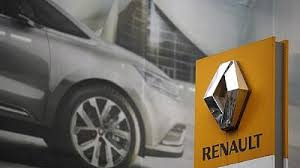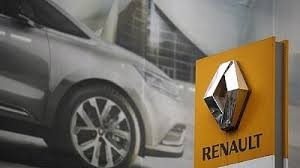
 Renault Group in Morocco has launched a new ecosystem requiring an investment of over one billion dollar at a ceremony held Friday in Rabat under the chairmanship of King Mohammed VI.
Renault Group in Morocco has launched a new ecosystem requiring an investment of over one billion dollar at a ceremony held Friday in Rabat under the chairmanship of King Mohammed VI.
The new structural project will consolidate the positioning of Morocco at the world level as a hub for automotive industry, said Minister of Industry Moulay Hafid Elalamy when presenting the broad lines of the project.
This project, which is part of the Moroccan extensive industrial acceleration plan launched in April 2014, will yield an additional turnover of almost $2 billion a year and create 50,000 new permanent jobs, thereby tripling the number of jobs created by the car maker in Morocco, said Moulay Hafid Elalamy, who doubles as Minister of Investment and Digital Economy.
The project will develop a global supply platform for the manufacturer which will triple the amount of its purchases of parts wholly manufactured in Morocco, he said.
The Renault Ecosystem will achieve a local integration rate of 65%, a fact likely to encourage major international suppliers to settle in Morocco. “With this integration rate, we will reach the size needed and long awaited by many OEMs wishing to operate in Morocco,” the minister said.
Moulay Hafid Elalamy said that thanks to the positive impact of the industrial acceleration plan and the moves made to restructure the industry sector into performing and inclusive ecosystems, Morocco has succeeded to join, in record time, the small club of the 31 countries producing and exporting engines.
Automotive ecosystems anchor more the industry sector in the kingdom’s economy and by 2020, jobs in the sector will jump to about 160,000 and automotive exports are expected to reach over $1.0 billion a year.
The rapid development of Renault Morocco group allowed the export of nearly 260,000 units manufactured in the Tangiers-based plant to European and Arab countries in 2015.
This development was possible thanks to the political, social and economic stability prevailing in Morocco, the minister said.
The Renault plant in Tangiers started operating in 2012 with an initial production capacity of 170,000 vehicles a year. In 2015, production stood at 288,000 vehicles and is expected to increase to 400,000 vehicles a year.
Director of Operations of the group for the Africa-India-Middle East Region, Bernard Cambier, hailed the Sovereign’s vision which, he said, made it possible for Morocco to score such a rapid industrialization rate. “The Renault group is happy and proud to have been associated as a partner in this development,” he said.
He said all the stakeholders in the Renault Ecosystem are upbeat as to the development prospects which are “very important” and which are “based on the dynamics of the Moroccan market and exports growth potential,” Bernard Cambier said.
He said that the development prospects in sub-Saharan Africa can offer some great opportunities for the tangier-based Renault plant, in addition to the expansion of other sectors such as spare parts and toolmaking industry, engineering at competitive costs and equipment supply.
During the launch ceremony, the sovereign presided over the signing ceremony of three conventions related to the new Renault Ecosystem project, to industrial land and to vocational training in the automotive sector.
